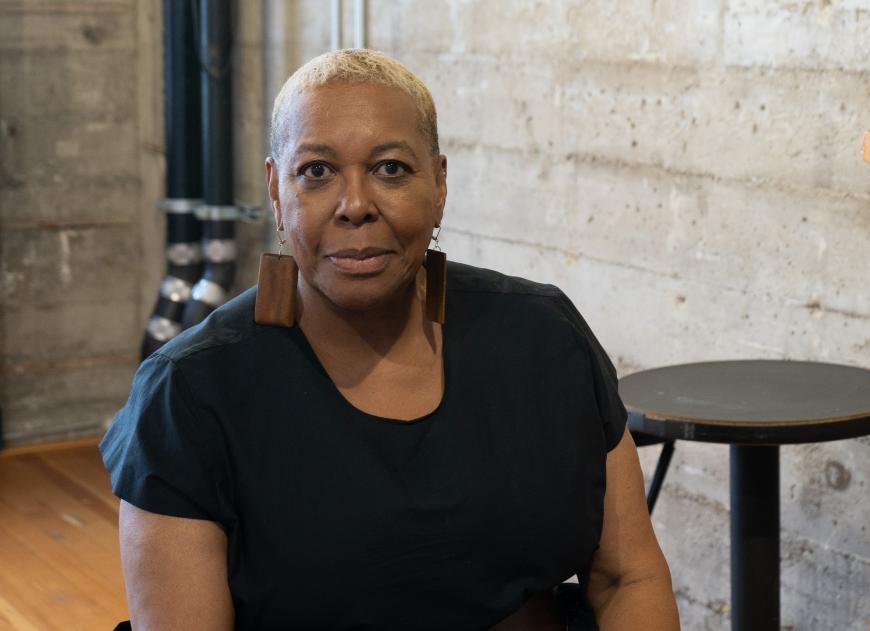
Growing up in Oakland in the late 1950s, Michelle Jacques didn’t know anything about her mother’s past in New Orleans. Not about the racism that her mom encountered day to day in Louisiana. Not about the financial prohibitions that prevented her mom from buying a house in that state. And not about the reasons her mother decided to leave the American South for Oakland in 1957 — and take Michelle, Michelle’s brother, Michelle’s grandmother, and several cousins — during a prolonged period called the Great Migration, when 6 million Black Americans left the South for California, Michigan, New York, and other states that would give them a better chance at economic opportunities.
“I didn’t know anything about this,” says Jacques, who’s now an established singer. “That information was hidden from me. That generation — they didn’t want to dwell on stuff like that.”
Jacques’s generation does want to dwell on it. Which is why Jacques has created a new performance suite, Daughters of the Delta, that uses the songs of Black women to narrate the history of Louisiana music from the late 19th century to the early 20th, when the Great Migration (which lasted, roughly, from 1910 to 1970) was in the throes of transforming American culture, including American music. Among the seminal figures in Jacques’s suite: Lil Hardin Armstrong, who was Louis Armstrong’s second wife and a singer in her own right; Blue Lu Barker, a New Orleans singer who may be best known today for “Don’t You Feel My Leg,” which Maria Muldaur helped popularize in the 1970s; and Becky Elzy and Alberta Bradford, Louisianan singers and folklorists who were both born in the mid-1800s but had long lives that saw them retain dozens of tunes that were preserved on 20th-century field recordings.
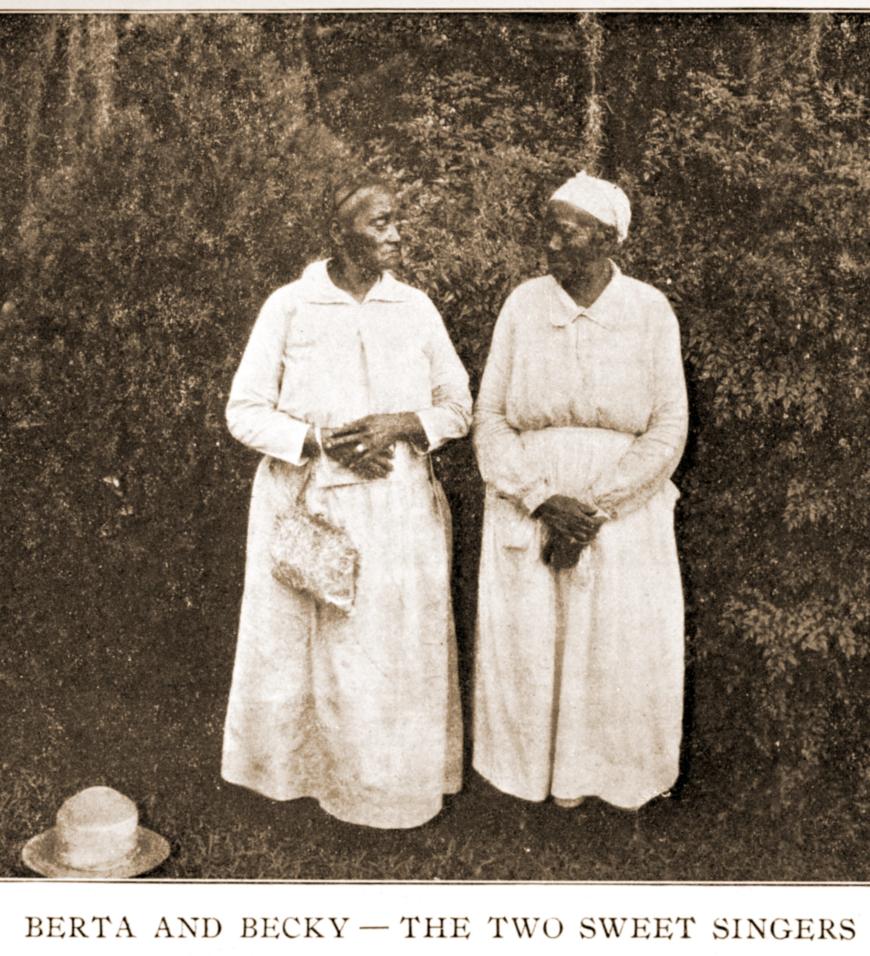
Daughters of the Delta, whose world premiere will be Saturday and Sunday, June 11 and 12, as part of the San Francisco International Arts Festival, will also feature original songs by Jacques and Cava Menzies, new arrangements of traditional songs by Bryan Dyer, and a group of other stalwart singers and musicians in performances that Jacques says will revive the music of an era that, while transformative, still under-recognized Armstrong, Barker, and many other important women. In fact, says Jacques, these women’s artistry remains under-recognized — to the point of being close to forgotten, at least in general discussions about music.
“A lot of the songs that I’ll be performing will no longer be heard,” Jacques says. “Their history will disappear. Like Becky and Alberta — their stuff is from the late 1800s and early 1900s. And people don’t even know any information about them. … And if it wasn’t for Maria Muldaur signing ‘Don’t You Feel My Leg,’ no one would know about Blue Lu Barker.”
Daughters of the Delta arrives at a time when other musicians — both of Jacques’s generation, and the next one — are creating musical pieces that mine songs from the Great Migration, and when writers and academics have also devoted new scholarship to narratives that examine how this epochal period in American history influenced — and is still influencing — mainstream culture, including music.
In her 1995 book, Who Set You Flowin?: The African American Migration Narrative, Columbia University scholar Farah Jasmine Griffin, who is the school’s William B. Ransford Professor of English and Comparative Literature and African American Studies, writes that migration narratives became a dominant emphasis for Black musicians, writers, and visual artists at the end of the 20th century. Citing such noteworthy cultural works as Toni Morrison’s 1992 novel Jazz, which centers on Harlem and the American South, Griffin writes that “the emergence of this new form” often narrated lives of Black Americans who moved from a provincial setting to a “more cosmopolitan, metropolitan area,” where they had to confront and negotiate an urban landscape that provided both opportunities but also resistance and limitations. Griffin’s book, which is billed as the first sustained study of migration as portrayed in African American literature, letters, music, and painting, articulates what other scholars have said about California, New York, and other states: They helped give voice to new narratives that also reemphasized the historic struggles of Black people and the pernicious legacy of slavery.
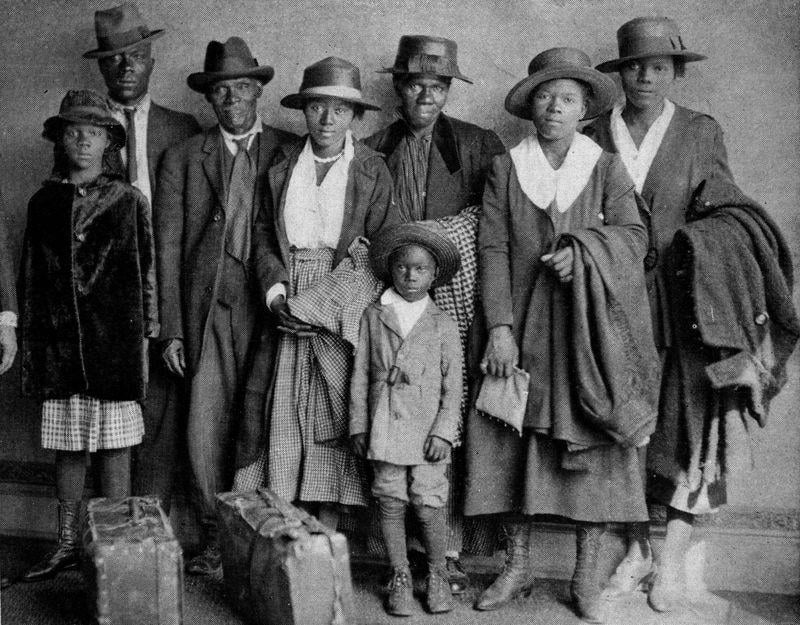
Music became a primary vehicle for those voices, which Isabel Wilkerson points out in her 2010 book, The Warmth of Other Suns: The Epic Story of America’s Great Migration, where she writes that “people the world over were enriched by the music the migrants carried north with them and, through translation, became — from Louis Armstrong to Miles Davis to Aretha Franklin to the Rolling Stones to Tupac Shakur, and many others — essentially the soundtrack of the 20th century.”
Jacques and other singers and musicians are trying to push that influence into the 21st century. Besides Daughters of the Delta, Jason Moran and Alicia Hall Moran toured Two Wings: The Music of Black America in Migration in 2019 to Carnegie Hall, the Kennedy Center, and other venues and then brought the performance this year to the Bay Area. (In a Berkeley News podcast that coincided with the Morans’ 2022 performance, UC Berkeley history professor Waldo E. Martin analyzed the Great Migration and its connection to music.) And last year, pianist Lara Downes created a three-part audio series, Migration Music, that explores music of the Great Migration from the 19th and 20th centuries.
What makes Daughters of the Delta different is Jacques’s emphasis on female singers and her personal experience with the subject, which includes being born in New Orleans. It was only in the past 15 years, when Jacques was already established as a singer and researching her ancestry and the history of Southern Black music, that she realized the paucity of material that existed — and her own disconnection from her family’s history. Jacques frequently performs under the name “CHELLE! and Friends New Orleans Band” and “CHELLE’S JUKE JOINT Acappella Ensemble” and identifies as both African American and Creole.
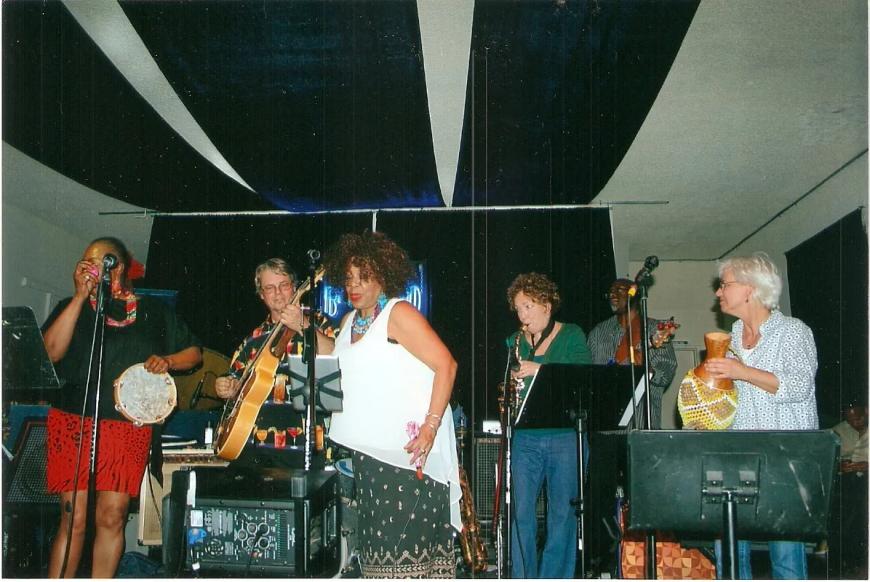
Before Daughters of the Delta, she says, “I had another [project] called Voyage Creole. I’m Creole, and it was a study of the Creole people. We had the African Creole, who had more African in them, and then we had the French Creole, who really associated themselves with the French part of their culture. So being an African American and an African Creole, I wanted to delve into that. But when I was delving into that, most of the stuff I found was about the men and their work, and very little about the women and their contribution to the music. So that’s what started me on this project. I really wanted to know their history and what were the strife and struggles that they went through, and why they wrote what they did. That’s why it’s important for me to make sure this legacy carries on.”
Included in the songs that Jacques and band members will perform on June 11 and 12 is “Adam in the Garden Pinnin’ Leaves,” which Becky Elzy and Alberta Bradford sang in a recording that the Library of Congress features in its profile of the two women, where you can hear the singers’ passion and musical flow, even when they were advanced in age. Bryan Dyer has rearranged the song for the June performances, which will also feature Armstrong’s “Gatemouth” and “Clip Joint,” Barker’s “Don’t You Feel My Leg,” Lizzie Miles’s “A Good Man Is Hard to Find,” Mahalia Jackson’s “Walk Over God’s Heaven,” and “Second Line” by Charmaine Neville — a contemporary New Orleans singer who, other than Jacques, Menzies, and Dyer, is the only living figure whose music is featured. But Jacques links Neville to Blue Lu Barker and others for this reason: Neville, who is the daughter of Charles Neville (of The Neville Brothers), is hardly known beyond certain musical circles.
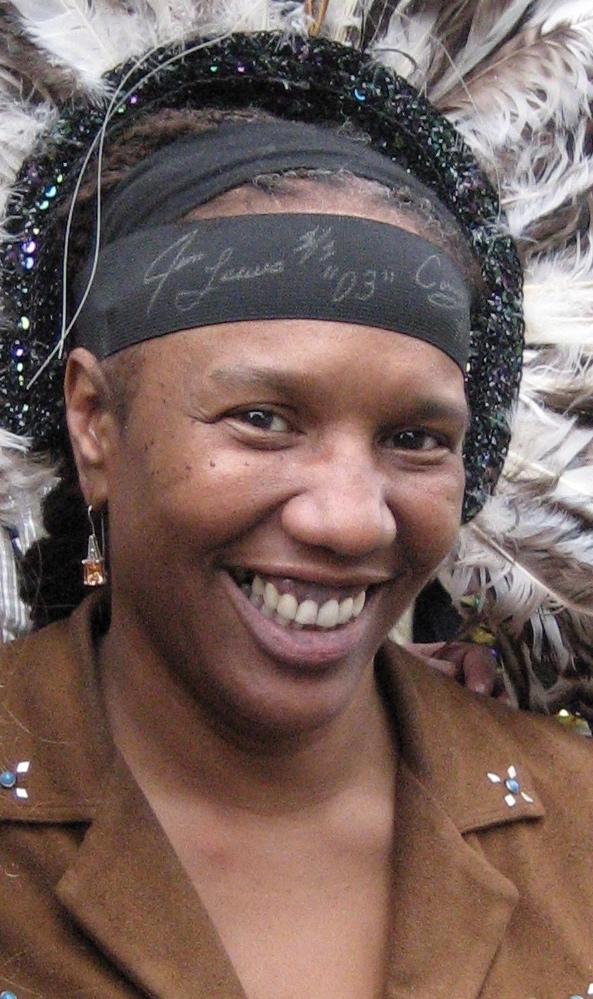
“You didn’t know about Charmaine, did you?” she asks in our interview. “You didn’t because she’s not getting the press that Aaron and all the rest of them get. But she’s big in New Orleans. She’s big in Louisiana. So this is my homage to her.”
“She doesn’t know about my work — yet,” Jacques says about Daughters of the Delta.
Jacques laughed as she said that, but her resolve to put on Daughters of the Delta will extend far beyond the two June dates. She’s creating a kids’ version of the show that she’ll perform for younger audiences, she wants to tour Daughters of the Delta around the United States, and she plans to do an accompanying documentary. The June 11 and 12 shows will feature onstage visuals of Becky Elzy, Alberta Bradford, and other Louisianan singers who have passed.
“I’m only able to cover four or five women as well as my original stuff, but there’s so many others that I’m not able to touch on yet,” Jacques says. “I’m going to go to New Orleans. My family is still there, and I’ll hang out not just at [Louisiana State University] and do research there but go deep with the musicians in New Orleans and go out in the bayous and places and talk to people and really delve into it. So this is just the beginning of my journey.”
Daughters of the Delta will take place at the Plymouth Jazz and Justice Church in Oakland — putting the performances in a religious space that seems appropriate since gospel music helped engender so much of the music that emanated from musicians whose families left the American South in the Great Migration.
“When I do my R&B and jazz, it all stems back to Louisiana and the culture from there, so I’m so excited,” Jacques says, before adding the sort of expression that embodies her celebratory nature: “We’re going to kick some ass!”
Get tickets for Daughters of the Delta on the San Francisco International Arts Festival’s website.




